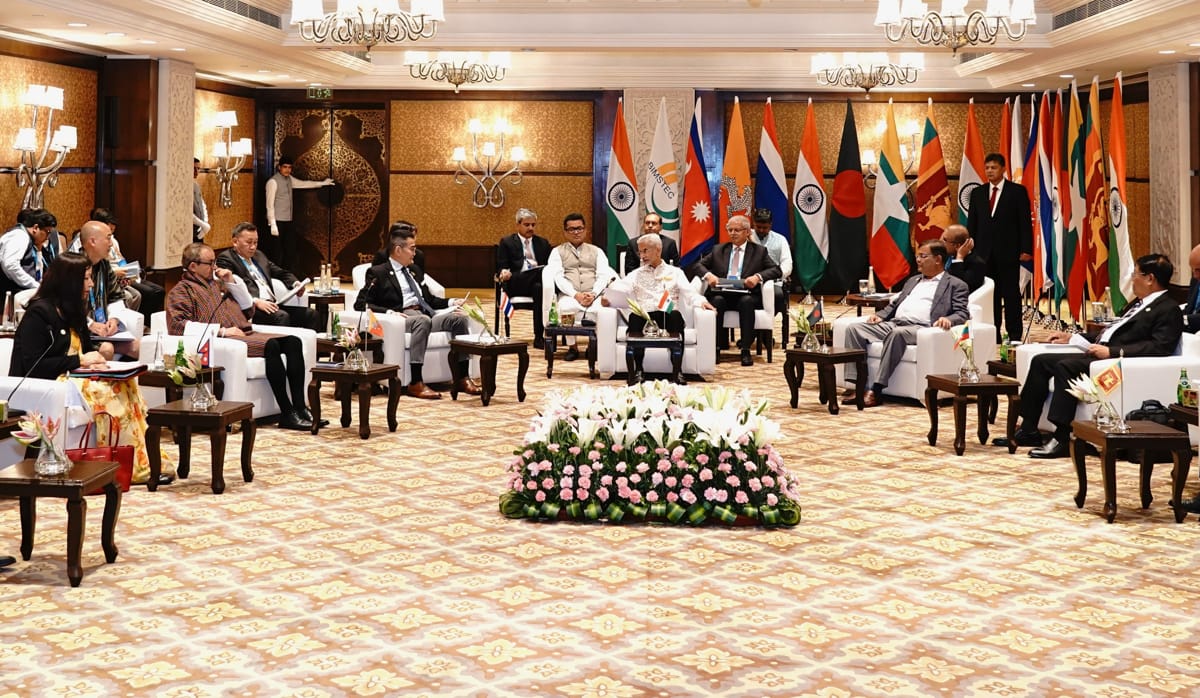“BIMSTEC” is one of the many technical and not-quite-pronounceable acronyms that pepper conversation about diplomatic affairs. It stands for the Bay of Bengal Initiative for Multi-Sectoral Technical and Economic Cooperation – and this year is shaping as pivotal for this regional organisation.
Although operational since 1997, BIMSTEC only adopted its charter in May this year. A second Foreign Ministers’ retreat was held in July, and a sixth summit will take place in September.
And in the background of this burst of activity sits the violence in Myanmar, one of seven member states in BIMSTEC and a country beset by civil war since the 2021 coup. Events are creating an opportunity for the regional organisation to play a role in stabilising the regional fallout from the conflict – a chance India, another member, seems determined to take.
While BIMSTEC was established to bolster economic cooperation, its mandate has gradually broadened. Article 1(7) of the new charter states that member states should collaborate to combat transnational organised crime. This provision lays the foundation for BIMSTEC to address the Myanmar crisis, which has led to people smugglers taking advantage of refugee flows and seen crime syndicates flourish, particularly among displaced populations in neighbouring Bangladesh.
While ASEAN has struggled, the involvement of BIMSTEC as a bridge between South Asia and Southeast Asia might provide space for a renewed ASEAN participation.
At the Foreign Ministers’ retreat, India’s External Affairs Minister Subrahmanyam Jaishankar urged “that we find more solutions among ourselves,” implying that BIMSTEC needs to step up to build significance and credibility.
Analysts in the past have suggested the need for a regional solution to the strife in Myanmar and criticised ASEAN for its inability to play the role in providing one. The “ASEAN Way”, based on the principles of non-interference, is seen as an obstacle. Besides Thailand and Indonesia, the limited direct impact of the crisis on most ASEAN members has also likely diminished the political will within the group to tackle the issue robustly.
BIMSTEC includes critical interlocutors to the crisis – Myanmar, Bangladesh Thailand and India – presenting a platform for discussion beyond bilateral channels. On the sidelines of the Foreign Ministers’ retreat, senior officials from Bangladesh and Myanmar met for talks on the repatriation of the almost one million Rohingya sheltering in Bangladesh, most of whom fled the 2017 crackdown prior to the coup.

Thailand is due to host the next BIMSTEC summit from 4 September, so the essential next step will be to ensure some mention of the situation in Myanmar and the Rohingya refugee crisis within the adopted declaration. If the BIMSTEC members can ensure this, it would set the tone that the regional organisation is working towards its mission of creating regional stability.
While ASEAN has struggled, the involvement of BIMSTEC as a bridge between South Asia and Southeast Asia might provide space for renewed ASEAN participation. India discussed the Myanmar situation with Special Envoy of the ASEAN Chair on Myanmar Alounkeo Kittikhoun in March. Such interactions suggest potential for inter-organisational collaboration between BIMSTEC and ASEAN on issues related to Myanmar and the Rohingya refugees.
With Bangladesh urgently seeking the repatriation of Rohingyas due to dwindling resources, and India unwilling to share the refugee burden due to its non-ratification of the 1951 Refugee Convention, BIMSTEC could facilitate alternative solutions. For instance, based on historic precedence, New Delhi might offer humanitarian and financial assistance to Dhaka to help manage the overburdening refugee situation, among other pathways.
Working towards a solution for Myanmar will aid the organisation’s work in other sectors. A meeting between India, Myanmar and Thailand on the sidelines of the retreat highlighted the importance of regional peace and stability for the success of connectivity projects. The India-Myanmar-Thailand Trilateral Highway project’s future remains uncertain, partly due to ongoing violence in Myanmar.
BIMSTEC’s increased activity and expanded mandate has positioned it well to address regional challenges and foster collaboration towards long-awaited neighbourhood solutions.

